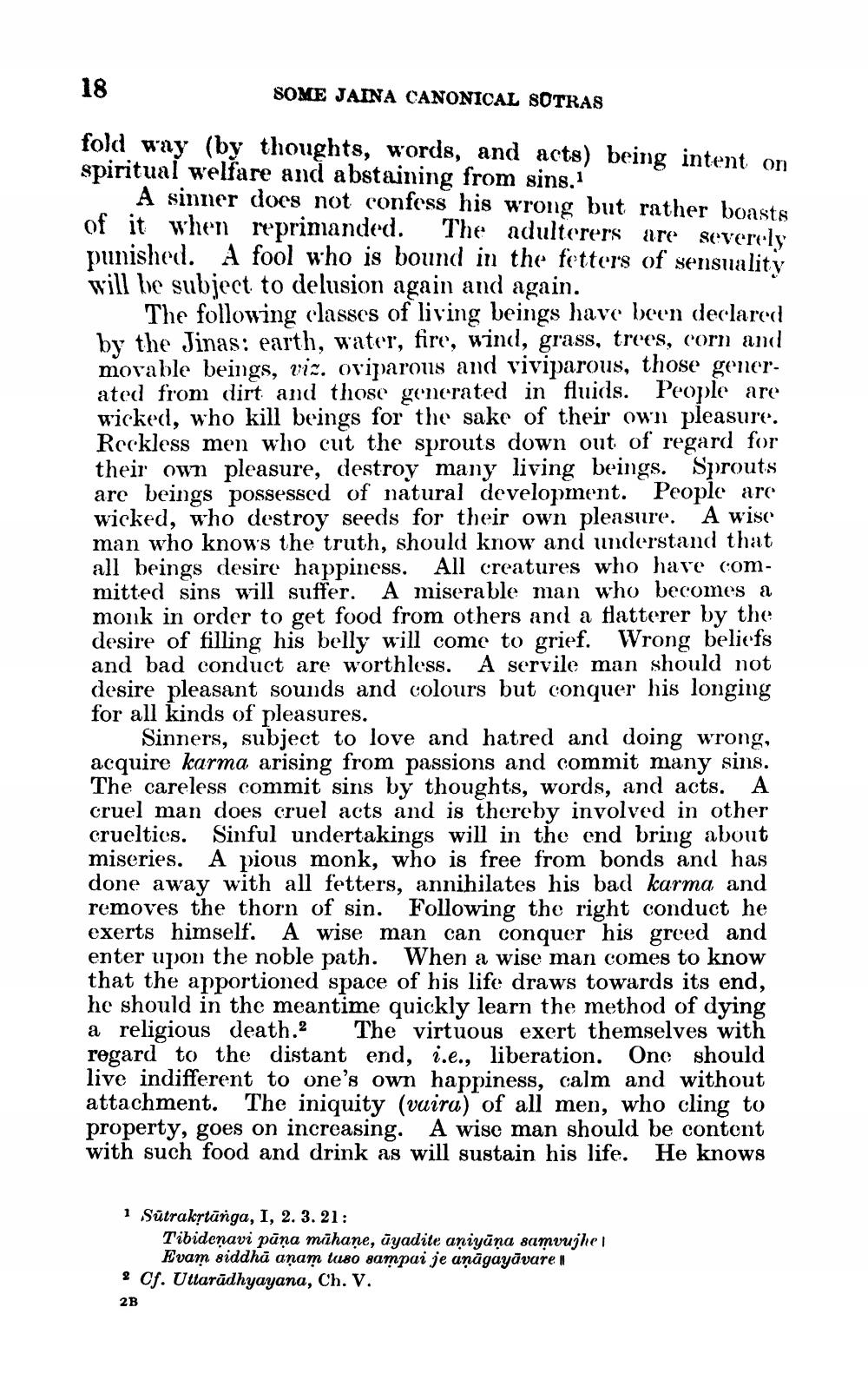________________
SOME JAINA CANONICAL SOTRAS
fold way (by thoughts, words, and acts) being intent on spiritual welfare and abstaining from sins. 1
A sinner does not confess his wrong but rather boasts of it when reprimanded. The adulterers are severely punished. A fool who is bound in the fetters of sensuality will be subject to delusion again and again.
The following classes of living beings have been declared by the Jinas: earth, water, fire, wind, grass, trees, corn and movable beings, viz. oviparous and viviparous, those generated from dirt and those generated in fluids. People are wicked, who kill beings for the sake of their own pleasure. Reckless men who cut the sprouts down out of regard for their own pleasure, destroy many living beings. Sprouts are beings possessed of natural development. People are wicked, who destroy seeds for their own pleasure. A wise man who knows the truth, should know and understand that all beings desire happiness. All creatures who have committed sins will suffer. A miserable man who becomes a monk in order to get food from others and a flatterer by the desire of filling his belly will come to grief. Wrong beliefs and bad conduct are worthless. A servile man should not desire pleasant sounds and colours but conquer his longing for all kinds of pleasures.
Sinners, subject to love and hatred and doing wrong, acquire karma arising from passions and commit many sins. The careless commit sins by thoughts, words, and acts. A cruel man does cruel acts and is thereby involved in other cruelties. Sinful undertakings will in the end bring about miseries. A pious monk, who is free from bonds and has done away with all fetters, annihilates his bad karma and removes the thorn of sin. Following the right conduct he exerts himself. A wise man can conquer his greed and enter upon the noble path. When a wise man comes to know that the apportioned space of his life draws towards its end, he should in the meantime quickly learn the method of dying a religious death.2 The virtuous exert themselves with regard to the distant end, i.e., liberation. One should live indifferent to one's own happiness, calm and without attachment. The iniquity (vaira) of all men, who cling to property, goes on increasing. A wise man should be content with such food and drink as will sustain his life. He knows
1 Sūtrakrtūnga, I, 2. 3. 21:
Tibidenavi pāņa mühaņe, āyadite aniyūna samvujhe
Evam siddhā asam luso sampai je anāgayāvare 2 Cf. Uttarādhyayana, Ch.V.
2B




